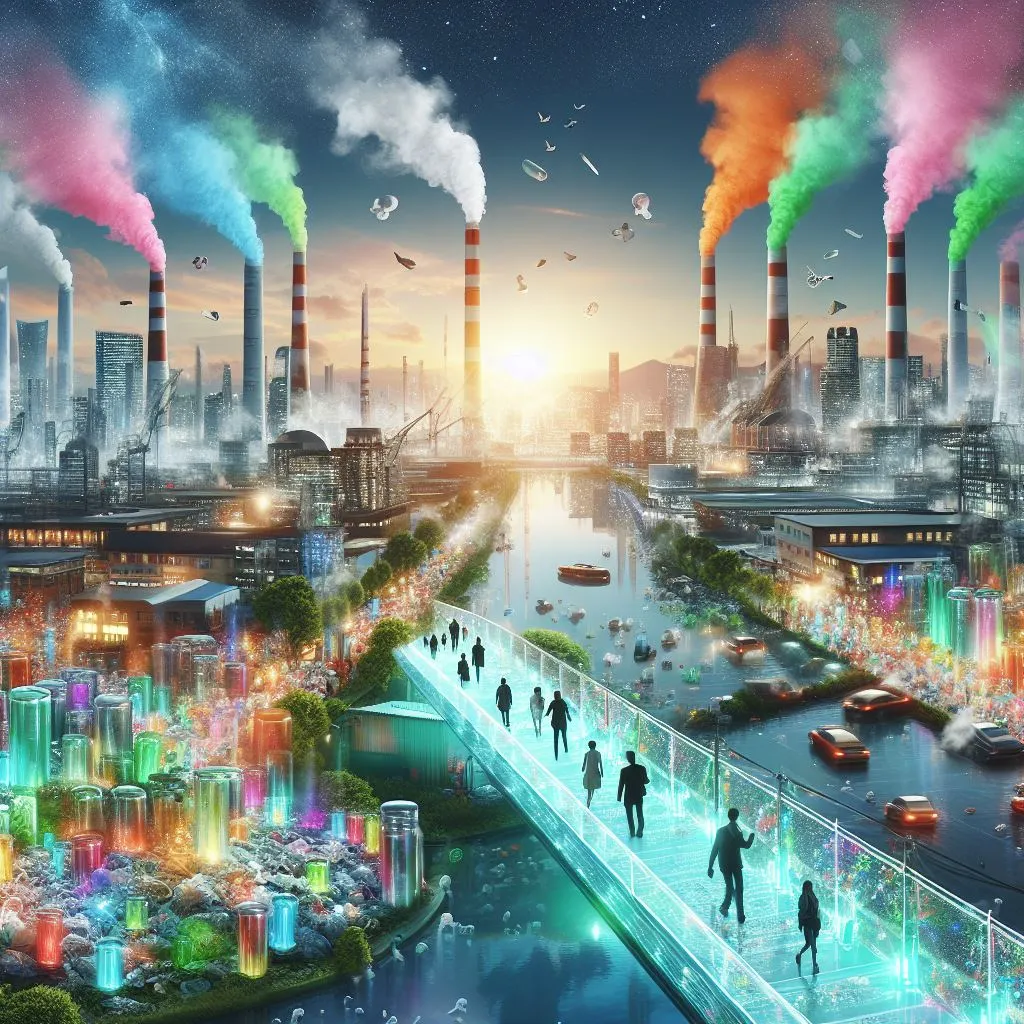handshakejournal.org – In the era of sustainability, recycling has emerged as a critical component in the quest to reduce waste and protect our environment. Revolutionizing Waste: Innovations in Recycling. The innovative approaches in recycling are not only transforming the way we handle waste but are also opening new slots for economic opportunities and environmental conservation. This article explores the latest advancements in recycling technology and their impact on our world.

The Evolution of Recycling Technologies
The journey of recycling has seen a significant transformation from simple sorting mechanisms to advanced technological solutions. Innovations such as optical sorting systems, robotics, and AI-driven waste management platforms have revolutionized the recycling industry. These technologies enable more efficient sorting and processing of recyclables, reducing contamination and increasing the overall recycling rate.
Breaking Down Barriers: Advanced Material Recovery
One of the major challenges in recycling has been dealing with complex materials that are difficult to process. Innovations in material recovery facilities (MRFs) have introduced advanced techniques to tackle this issue. For instance, new shredding and separation technologies have made it possible to recycle items that were previously considered non-recyclable, such as multi-layer packaging and certain plastics. These advancements are like unlocking new slots in the recycling process, allowing for a broader range of materials to be recycled.
The Role of Circular Economy in
Revolutionizing Waste: Innovations in Recycling
The concept of a circular economy plays a pivotal role in the evolution of recycling. By designing products and packaging with recycling in mind, manufacturers can ensure that materials can be easily recovered and reused. This shift towards a circular economy not only reduces waste but also conserves resources and energy. It’s akin to creating a continuous loop or slot in which materials are constantly recycled and repurposed, minimizing the need for virgin materials.
The circular economy is a transformative approach that redefines the traditional linear model of “take-make-waste” into a restorative and regenerative system. In the context of recycling, the circular economy plays a crucial role in maximizing resource efficiency and minimizing environmental impact. By prioritizing the design of products and packaging for recyclability, the circular economy ensures that materials are kept in circulation for as long as possible, reducing the need for virgin resources and lowering carbon emissions.
In A Circular Economy Revolutionizing Waste: Innovations in Recycling
Recycling is not just an end-of-life solution but a critical process in the continuous cycle of use and reuse. This approach encourages manufacturers to consider the entire lifecycle of their products, from design and production to disposal and recycling. For instance, designing products with modular components that can be easily disassembled and recycled can significantly enhance the effectiveness of recycling processes. This not only reduces waste but also creates economic opportunities by transforming waste streams into valuable secondary materials.
Furthermore, the circular economy promotes the use of renewable energy in recycling processes, further reducing the environmental footprint. By powering recycling facilities with solar, wind, or other renewable sources, the carbon emissions associated with recycling can be significantly reduced.
The implementation of extended producer responsibility (EPR) schemes is another key aspect of the circular economy that impacts recycling. EPR policies require manufacturers to take responsibility for the end-of-life management of their products, incentivizing them to design products that are easier to recycle and to support recycling infrastructure. This shift in responsibility helps ensure that valuable materials are recovered and reused, rather than being lost to landfill.
In conclusion, the circular economy is a holistic approach that reinforces the importance of recycling in achieving sustainability. By promoting the design of recyclable products, the use of renewable energy, and the implementation of EPR schemes, the circular economy creates a supportive framework for recycling. This not only benefits the environment but also fosters innovation and economic growth, making recycling an integral part of a sustainable future.
Empowering Communities through Recycling Initiatives
Grassroots recycling initiatives are gaining momentum, empowering communities to take charge of their waste management. Programs such as community recycling centers and local composting projects are providing accessible slots for individuals to contribute to recycling efforts. These initiatives not only promote environmental awareness but also foster a sense of community responsibility towards waste reduction.
The Future of Recycling: Innovations on the Horizon
As technology continues to advance, the future of recycling holds promising innovations. For example, the development of enzymatic recycling processes for plastics offers a more sustainable and efficient alternative to traditional mechanical recycling. Additionally, the integration of blockchain technology in waste management systems could enhance transparency and traceability in the recycling process, ensuring that materials are properly recycled and repurposed.
Challenges and Opportunities Revolutionizing Waste: Innovations in Recycling
Despite the advancements, the recycling industry faces challenges such as fluctuating market demand for recyclables, contamination issues, and the need for global collaboration. Addressing these challenges requires a concerted effort from governments, industry stakeholders, and consumers. However, with every challenge comes an opportunity. By investing in research and development, promoting public awareness, and fostering international cooperation, we can unlock new slots for innovation and progress in recycling.
The innovations in recycling are revolutionizing the way we manage waste, turning what was once considered trash into valuable resources. As we continue to explore and implement these advancements, we open new slots for a more sustainable and circular future. By embracing these innovations, we can reduce our environmental footprint, conserve natural resources, and pave the way for a cleaner, greener planet.